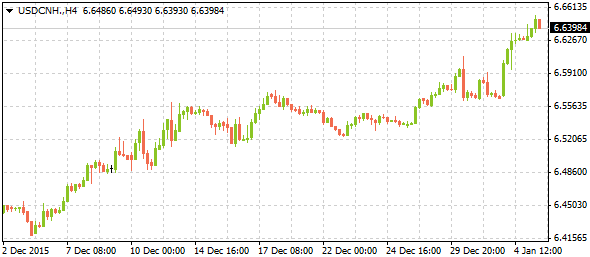Investing.com’s stocks of the week
A chain reaction of declines in major equity indices around the world began this week with China, in a disappointing start to 2016 that saw the country’s stock market halted. Monday’s turbulence resulted in Chinese equities dropping around 7%, a slide of proportions unseen since the summer and attributed to drops in sentiment on the back of poor economic performance. The uncertainty in one of the world’s most significant markets took other major indices for the ride downward, resulting in deepest losses in the last 4-months. As expected, the event influenced policymakers from the People’s Bank of China to quickly implement a $19.90 billion liquidity injection at an interest rate of 2.25% in an effort to prevent liquidity from freezing over. The amount represents the largest easing injection since the many last year, illustrating the eagerness with which Chinese officials want to instill confidence in their domestic financial market. Monday’s selloff erased $590 billion worth of market capitalization from equities in China, a scary number that has policymakers in the country looking back over their shoulders.

Though the new stimulus is significant, market participants do not see it as enough considering the failure of similar efforts to prevent these problems. This is what quickly swallowed the small rebound following the initial crash, keeping pressure on stocks despite the newly introduced liquidity. There is currently worry in the markets that January 8 will see further declines in China, due to an important measure introduced last year making it impossible for investors with more than 5.00% of a company’s shares to sell. With the evaporation of this temporary law, $185 billion worth of capital is at risk of vanishing if these big investors and institutions choose to run. Amid efforts like the devaluation of the yuan to its lowest level in 4 years, multiple cuts to the lending rate and required reserve ratio and various selling restrictions, the Central Bank is ready to implement even more of these stimuli in order to fight the capital flight.
